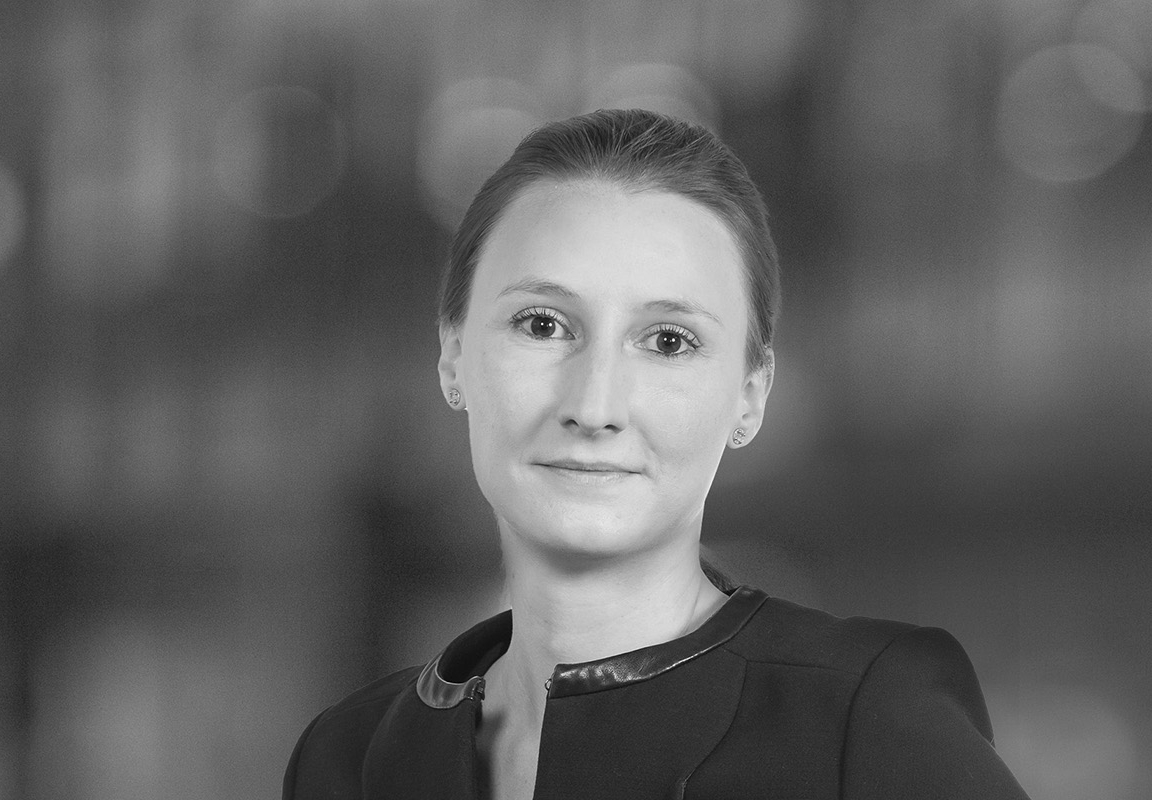
Latest developments on the Article 22 EUMR referral mechanism: the only thing that's certain is the uncertainty
9 min read
The European Commission ("EC") is shifting its approach with respect to the referral mechanism under Article 22 of the EU Merger Regulation 139/2004 (the "EUMR") and now – at least in certain circumstances – encourages referrals from Member States even where the national filing thresholds are not met. This begs the question of whether the merging parties can stop the referral by appealing the national referral decisions. Just weeks after the EC introduced its new policy, we have an initial answer: the French Council of State and a court in The Hague have rejected applications to suspend or annul such a request for referral.
On 26 March 2021, the EC published new guidance on the application of the referral mechanism set out in Article 22 EUMR. This provision allows for mergers to be referred by the National Competition Authorities ("NCAs") to the EC, which now no longer discourages referrals falling below national merger thresholds but may encourage them in appropriate cases. With the progressive implementation of national regimes for merger control in almost all Member States, the EC developed a practice of discouraging referral requests under Article 22 EUMR from Member States that did not have original jurisdiction over the transaction at stake. This practice was notably based on the experience that such transactions were not generally likely to have a significant impact on the internal market. In recent years, however, market developments have shown an increase of concentrations involving firms that play or may develop into playing a significant competitive role on the market(s) at stake despite generating little or no turnover at the moment of the concentration.
Thus, mergers that fall below national merger thresholds and which (i) affect trade between Member States and (ii) threaten to significantly affect competition within the territory of the Member State or States making the request may be reviewed by the EC. In the past, the EC had developed a practice of discouraging such referral requests where the NCA did not have genuine jurisdiction over the transaction at stake, because it was generally not likely to have a significant impact on the market. However, the EC believes, based on recent market developments, notably in the digital or pharmaceutical sectors, that even transactions that may significantly affect competition in such sectors often escaped merger control because of low turnover.
The new guidance aims at addressing this perceived enforcement gap with respect to so-called "killer acquisitions" falling below all merger thresholds in the EU. Although the new guidance explicitly refers to the digital and pharma/biotech sectors, the EC's renewed practice is not limited to those specific sectors and leaves the door open for any transaction which falls below the national merger control thresholds and threatens to affect competition in the EU.
These changes further reduce legal certainty for merging parties, which begs the question whether and under which conditions national referral decisions can be challenged.
The French Council of State does not have jurisdiction to suspend a request for referral under Article 22 of the EUMR by the French Competition Authority
On 1 April 2021, the French Council of State (Conseil d'Etat) rejected an application from biotechnology company Illumina to suspend the referral by the French Competition Authority ("FCA") of its acquisition of Grail to the EC under Article 22 EUMR, which was the first time the FCA referred a below-threshold transaction to the EC.
By way of background, in September 2020, Illumina announced its US$7.1 billion acquisition of Grail, which is developing multi-cancer early detection tests that screen for cancer in asymptomatic patients using DNA sequencing. Illumina founded Grail in 2016 and owns 14.5% of the company.
On 19 February 2021, the EC invited national competition authorities in Member States to refer the transaction to it, which the FCA did on 9 March 2021, followed by the national competition authorities in Belgium, Greece, the Netherlands, Iceland and Norway.
On 19 and 29 March 2021, Illumina filed an application for interim relief before the French Council of State seeking to obtain the suspension of the referral request of the FCA.
Illumina and Grail argued that the FCA erred in law and failed to respect the principle of legal certainty by requesting the review of a transaction, which did not meet the domestic turnover thresholds, solely because it was "likely" to lead to anti-competitive effects, whereas the referral of such transactions should be reserved for cases where the risk of competition law concerns is both "obvious" and "particularly serious".
In addition, they notably claimed that (i) the FCA could not have requested the referral to the EC since the 15-working-day period within which such request should be made had expired, (ii) proceedings were irregular because the undertakings had not been consulted or given the opportunity to express their views, and (iii) the FCA was wrong to consider the transaction as potentially anticompetitive.
However, on 1 April 2021, the French Council of State ruled that Illumina could not challenge the FCA's request for referral to the EC because it was lacking jurisdiction to hear the case. The French Council of State considered that the request for referral of the FCA "cannot be severed from the EC's merger review, falling under the review of the Court of Justice of the European Union. Consequently, notwithstanding the effects of the FCA's request on the undertakings concerned, the administrative judge does not have jurisdiction over a dispute concerning the referral request".
In other words, the referral decision is not a challengeable act, as it does not have any independent effects, and cannot be severed from the substantive decision of the EC, which is the one that can be challenged.
Consequently, the parties will need to refrain from implementing the transaction for several months and bear the costs of such a delay, since the EC accepted the request for referral on 20 April 2021 and the transaction had not closed. The EC considered that the criteria for referral under Article 22 EUMR were met in light of the possible restriction of access to or price increases of next-generation sequencers and reagents, to the detriment of Grail's competitors, and the fact that Grail's competitive significance is not reflected in its turnover.
Following the acceptance by the EC of the request for referral, Illumina asked the EU General Court to annul the EC’s investigation into its acquisition of Grail on 29 April 2021.
The Court of The Hague did not ban the Dutch Competition Authority from joining the referral request launched by the FCA
In parallel, Illumina and Grail sought to prevent the Dutch Competition Authority ("ACM") from joining the referral request launched by the FCA in Dutch proceedings before the Court of The Hague.
Illumina and Grail argued that (i) Article 22 EUMR could only be invoked where Member States have domestic jurisdiction, (ii) joining the FCA's referral request would violate the ACM's own procedural rules, (iii) the referral would be contrary to the EC's practice of discouraging referral requests from Member States that did not have jurisdiction to review a transaction, and (iv) the referral request did not meet the conditions of Article 22 EUMR.
Illumina and Grail also considered that the ACM could not join the FCA's referral request because the latter was submitted after the deadline of 15 working days of Article 22(1) EUMR. While considering that such matter should be decided by the French Council of State and the EC itself, the Court of The Hague stated that it had not been established that the deadline had actually expired when the FCA launched the referral request on 9 March 2021. Illumina and Grail argued that the deadline for the FCA started running when they publicly disclosed their intention to merge to the Competition and Markets Authority ("CMA") in the UK in 2020 and answered its requests for information on 11 December 2020 and 14 January 2021. However, the Court of The Hague considered that the period of 15 working days only starts with regard to a Member State to which the concentration has been notified and which subsequently wishes to make a referral. Subsequently, the EC explains in footnote 43 of its Notice on the referral of merger cases that this means that sufficient information is provided to that Member State to make a preliminary assessment as to whether the criteria of Article 22 EUMR have been met. If the Member State does not receive that information, it cannot assess whether it should refer the case to the EC and the time limit cannot start to run. The Court of The Hague considered that reports in the media and answering questions from the CMA did not result in the period of 15 working days of Article 22 EUMR starting with regard to France.
Therefore, the Court of The Hague rejected the arguments raised by Illumina and Grail and did not ban the ACM from joining the FCA's referral request to the EC.
Conclusion and implications
The EC revitalized Article 22 EUMR to catch suspected "killer acquisitions", and while the Illumina/Grail case was already ongoing, we are already seeing where it is heading, and some important questions answered. It seems that considerations to introduce a transaction value-based threshold at EU level will no longer be pursued. It is remarkable that several Member States reject the EC's new policy, and even consider it unlawful.
In the context of the Illumina/Grail transaction, the Spanish, Austrian and Slovenian competition authorities considered they do not have the power to refer the transaction to Brussels. The Spanish competition authority considered that under Spanish competition law, it can only refer deals that would otherwise be notifiable in Spain. According to Austria's competition authority, there is no legal basis for a referral as the conditions for a merger notification are not fulfilled in Austria.
The Irish, Lithuanian and Latvian competition authorities stated that there were no grounds to send the merger to the EC, since the transaction was not notifiable in these countries and did not have any effect on the market, and the Hungarian competition authority expressed concerns over legal certainty for companies. Finally, the German and Swedish competition authorities declined to send the deal for review.
In any event, the new policy will have an impact on deal certainty and timelines for merging parties. However, it remains to be seen whether this is simply a safety net to deal with extreme cases - and after the initial buzz created by the publication, the dust will settle down - or whether this is a more significant blow to the cherished One Stop Shop principle. In any event, the risk of a referral request will need to be carefully considered and addressed in the deal documentation.
White & Case means the international legal practice comprising White & Case LLP, a New York State registered limited liability partnership, White & Case LLP, a limited liability partnership incorporated under English law and all other affiliated partnerships, companies and entities.
This article is prepared for the general information of interested persons. It is not, and does not attempt to be, comprehensive in nature. Due to the general nature of its content, it should not be regarded as legal advice.
© 2021 White & Case LLP



